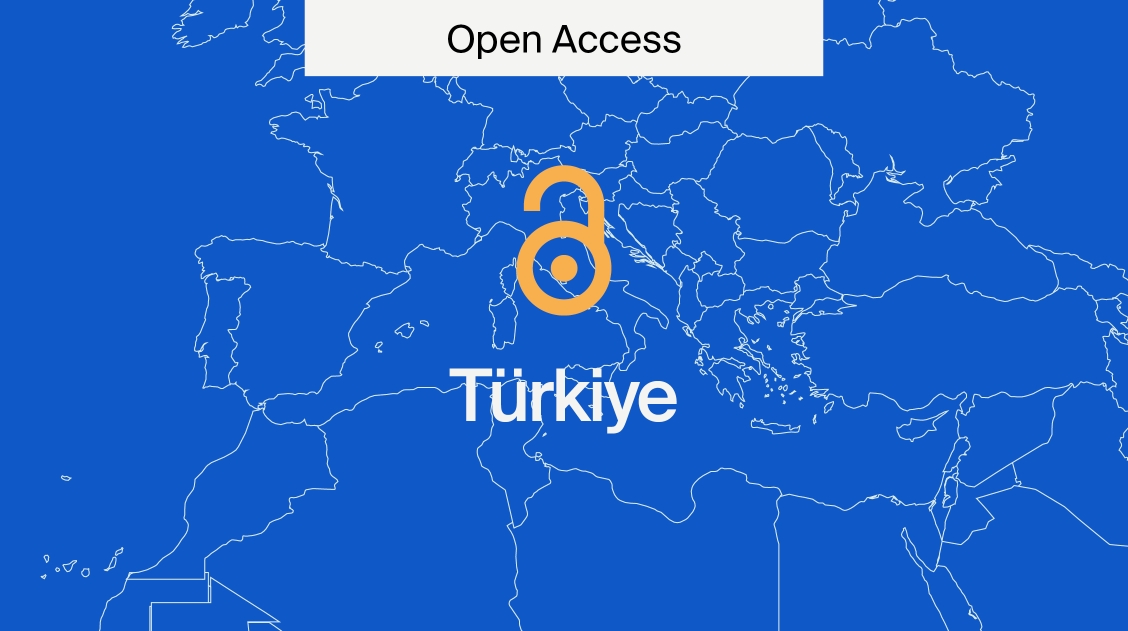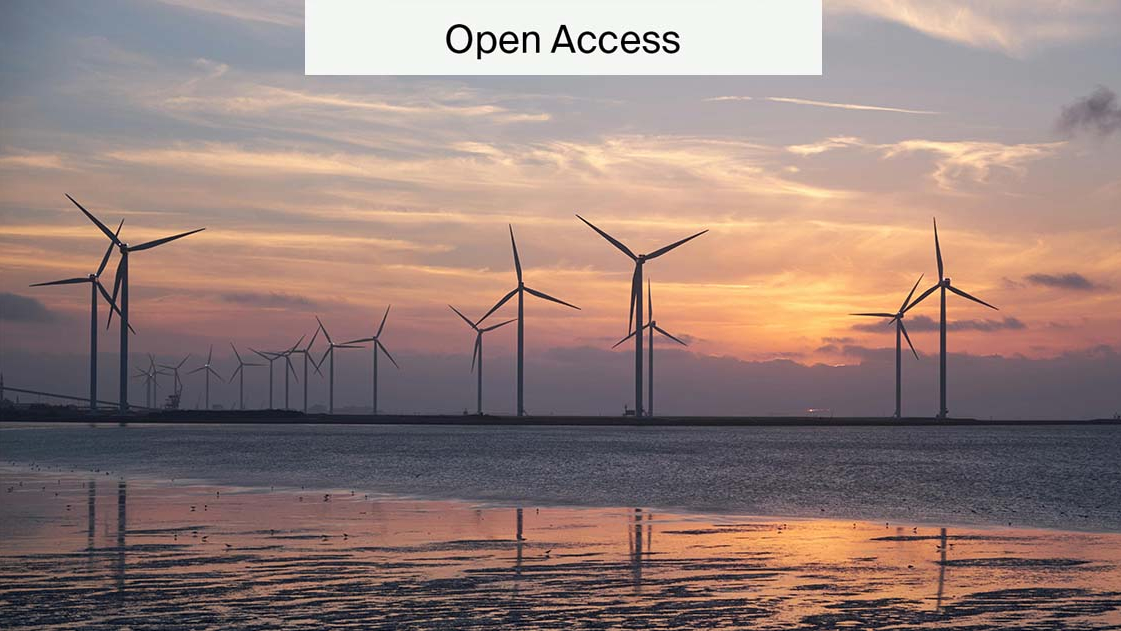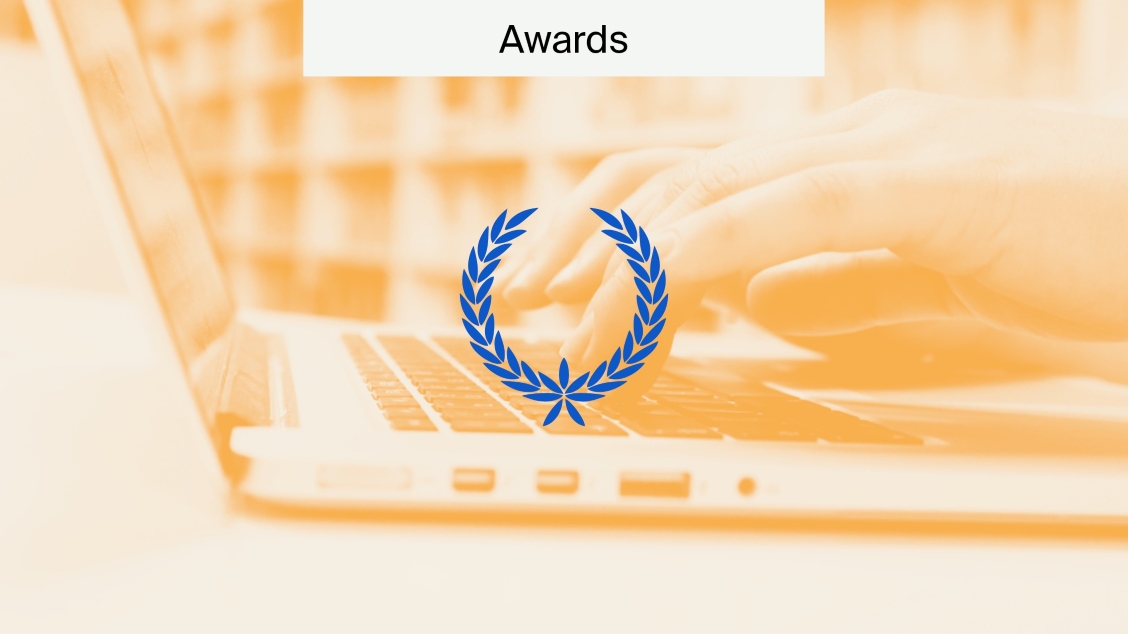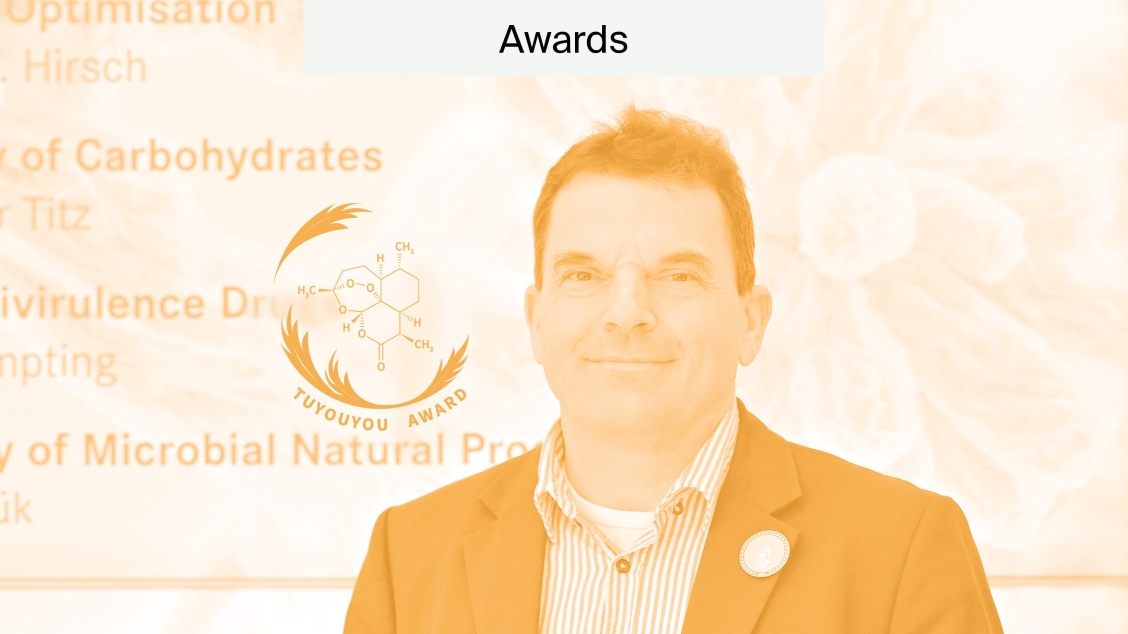
Open Access in Türkiye
Türkiye has a robust infrastructure for Open Access publishing and is gradually increasing its requirements for openness. The country has a range of initiatives designed to support and encourage researchers pursuing open science.
We outline the history of Türkiye’s mandates and its current policies for those looking to read or submit research.
Open Access is the new paradigm
Open Access refers to a publishing model for scholarly research that makes information immediately available to readers at no cost. This research is also free to reuse for scholarly purposes.
The benefits of publishing Open Access include potentially gaining more citations and having a greater impact, reaching a wider audience, advancing scientific innovation, retaining copyrights, and creating opportunities for collaboration and recognition.
Open Access can also help institutions like universities and research agencies in low- and middle-income countries by removing any price barriers to accessing academic research.
History of Open Access in Türkiye
Türkiye has a long history of engaging with open science practices. Here is a brief history of Open Access in Türkiye:
- 2006: The Anatolian University Libraries Consortium (ANKOS) establish the Open Access and Institutional Repositories Working Group.
- 2011: Türkiye join OpenAIRE, a European open science infrastructure project.
- 2013: The Izmir Institute of Technology (IZTECH) introduce the first Open Access mandate in the country.
- 2017: The National Open Access Archive (APERTA), a central repository for articles and data, is piloted.
- 2018: The Turkish Parliament mandate that all theses and dissertations must be made Open Access.
- 2019: The Scientific and Technological Research Council of Türkiye (TÜBİTAK) require all funded research be made openly available.
- 2019: IZTECH introduce the country’s first open science policy, requiring research data to be made openly available.
- 2022: IZTECH introduce the Research Data Management Directory.
Since the mid-2000s, Turkish institutions have been engaging with Open Access to increase access to and the reusability of research. Since then, Open Access and open science practices have gained momentum throughout the country at policy and infrastructure levels.
Current Open Access laws in Türkiye
Türkiye has a robust infrastructure designed to enable researchers to pursue open science.
In 2018, the Turkish parliament mandated that all theses and dissertations must be made openly available. Supported by the Council of Higher Education (YOK), this is achieved by submitting them to the YOK National Theses Center.
TÜBİTAK is responsible for promoting, developing, organizing, conducting, and coordinating research and development in line with national targets and priorities.
In 2019, as the leading agency for the management, funding, and conduct of research, TÜBİTAK introduced an open science policy. This applies to all publications and research data originating from projects carried out or supported by TÜBİTAK.
The policy lists requirements:
- The accepted version of manuscripts must be deposited in the TÜBİTAK Repository.
- The full text of publications must be made Open Access once they are ready for publication, or after a 6–12 embargo period, depending on the discipline.
It also includes some recommendations:
- Choose the gold Open Access route, namely, publish in an Open Access journal.
- Establish research data management plans focused on openness.
- Share data openly.
Furthermore, ANKOS are continually establishing transformative and read and publish agreements with publishers, providing access to research in Türkiye. Their work also includes raising awareness, providing training, and coordinating researchers and institutions.
Open science infrastructure
The Turkish Academic Network and Information Center (ULAKBIM) provides valuable infrastructure and services to support the national science ecosystem.
ULAKBIM services include:
- APERTA: This is the national data repository, ensuring data are findable and accessible.
- HARMAN: This is the Türkiye Academic Archive, which is a national metadata centre, serving as a search engine for national Open Access information.
- DergiPark (Journal Park): This national platform provides online hosting services and an editorial system for academic journals; it hosts many Open Access journals.
ULAKBIM works closely with TÜBİTAK to ensure that researchers can follow the mandated requirements for openness.
Diamond Open Access
Diamond Open Access refers to journals which have no article processing charges to submit research and no restrictions to accessing the material published in them.
Because of the strength of Türkiye’s infrastructure, universities can launch and maintain diamond Open Access journals. As a result, in DergiPark, there are around 2500 open journals, with 95% of them being diamond.
This shows the practical benefits of strong infrastructure and national commitment to removing barriers to scientific information.
Educational resources
Also created and hosted by ULAKBIM is the Open Course Platform.
This includes educational resources focused on enabling researchers to develop new strategies and skills relating to open science.
Courses come with certification, and include topics such as:
- Research data management.
- Open Access.
- Responsible Research and Innovation.
- Open Citations.
- Open Peer Review.
- Text and Data Mining.
- Open and Reproducible Research.
This demonstrates that TÜBİTAK and ULAKBIM are invested in supporting researchers in pursuing openness.
OpenAIRE
OpenAIRE has been instrumental in the development of open science infrastructure and practice in Türkiye. The initiative has provided essential infrastructure and fostered collaborations.
OpenAIRE is a non-profit organization, with the mission to promote open scholarship and improve the discoverability, accessibility, shareability, reusability, reproducibility, and monitoring of data-driven research results globally.
It is a European e-infrastructure that offers a diverse set of public services to accelerate the adoption of open principles.
Horizon Europe
Türkiye is a member of Horizon Europe.
Horizon Europe is a European research and innovation commission programme that will last until 2027 and has a budget of €95.5 billion. Its aims are to facilitate collaboration and strengthen the impact of research and innovation in developing, supporting, and implementing EU policies whilst tackling global challenges.
Accordingly, Open Access is mandatory for researchers receiving funding. This is so Horizon Europe can support the “creating and better dispersing of excellent knowledge and technologies”. Its aims revolve around tackling climate change, achieving the UN’s Sustainable Development Goals, and boosting growth.
If you want to learn more about the EU’s Open Access policy, we have a full article on the topic.
Türkiye’s Open Access statistics
Türkiye has gradually shifted towards Open Access publishing, which now represents half of its share of publications. According to InCites data (Clarivate) extracted in September 2025:
- 2013: 70% of articles and reviews were non-OA and 30% were Open Access.
- 2018: 58% of articles and reviews were non-OA and 42% were Open Access.
- 2023: 49% of articles and reviews were non-OA and 51% were Open Access.
As you can see, there has been a steady decline in non-OA publications in Türkiye, with more researchers choosing Open Access. The robust system of infrastructure in the country has made choosing openness an reliable option for researchers even before mandates were introduced.
Future trends
Türkiye has seen a steady increase in open science practices, which is being supported by highly developed infrastructure and policies.
The TÜBİTAK policy contains requirements, namely, sharing the publication openly, and recommendations that researchers share their data openly. In line with evolving open science practices globally, TÜBİTAK could begin to mandate open data, much like IZTECH already have.
This would involve a greater emphasis on open data and data management plans.
Furthermore, the country’s longstanding collaboration with OpenAIRE is likely to continue, encouraging collaboration and infrastructure development.
The suite of ULAKBIM services remains a vital resource for researchers in the country, which only reflects their commitment to ensuring open science.
In short, Türkiye’s robust infrastructure for open science and its growing share of Open Access output reflects its commitment to ensuring research is openly available to all.
Value of Open Access
All articles published by MDPI are made immediately available worldwide under an Open Access license. This means:
- Everyone has free and unlimited access to the full text of all articles published in MDPI journals;
- Everyone is free to re-use the published material if proper accreditation/citation of the original publication is given;
- Open Access publication is supported by the authors’ institutes or research funding agencies by payment of a comparatively low Article Processing Charge (APC) for accepted articles.
Researchers can participate in Türkiye’s developing Open Access community and pre-empt any legislation by publishing in an MDPI journal. Alternatively, if you want to publish an early version of your article, try Preprints.org, our free service for publishing research that is not peer-reviewed and report on either ongoing or complete research.
Open Access makes vital information accessible to all readers and researchers and brings together scholars from across the world. Thus, it is ideal for tackling global challenges such as climate change and cancer research that require urgent and coordinated attention.
Türkiye has a robust infrastructure that enables open science, which is being embraced by researchers. Click here if you would also like to learn more about Open Access around the world.










